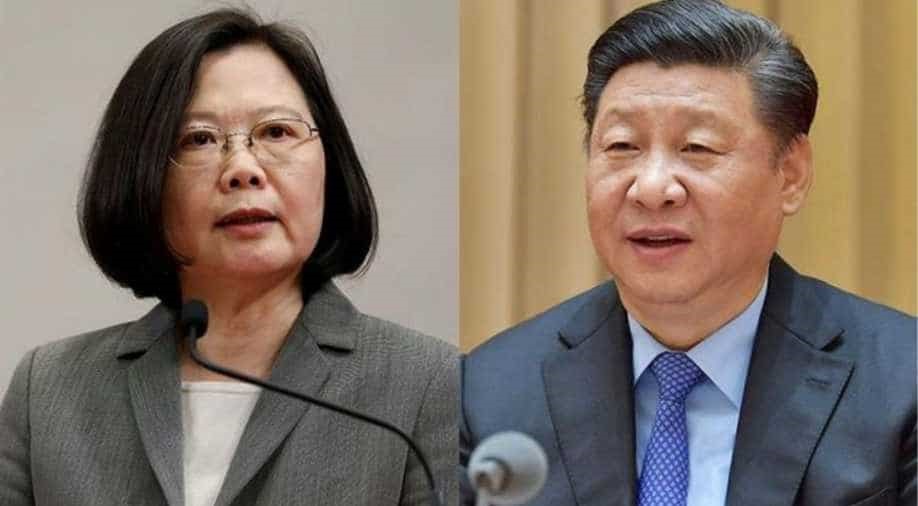Srimedha Bandi
29th May 2021

Taiwan officially known as the Republic of China is an island located ninety miles off the southern coast of China and is home to the Austronesian tribes, migrants Fujian (Fukien) province and Guangdong. Contemporarily the island is independently governed from the mainland yet the first instances of Chinese control date back to the Second World War post the victory of the allies, who concurred to the Chinese accession of Taiwan. This accession resulted in the break out of a civil war led by Chiang Kai-shek, an erstwhile Chinese leader, and his troops, the KMT and supporters, who were beaten back by Mao Zedong’s armies. The war ended with Martial Law being imposed in the country till 1987. Ever since the relations between China and Taiwan have improved given China’s policy of ‘One Nation, Two Systems’, wherein Taiwan would be given significant autonomy if it accepted Chinese reunification. Although Taiwan rejected the offer, it relatively eased norms for investment and Chinese visits. Following this, Taiwan democratised its erstwhile authoritarian rule with its first election held in 2000 putting an end to the KMT’s rule. Following the 2004 election with the re-election of President Chen Shui-bian China passed an anti-secession law, stating China’s right to use “non-peaceful means” against Taiwan if it tried to “secede” from the mainland. Twelve years after consistent fights and pushbacks, in 2006, Taiwan Democratic Progressive Party took a stance leaning towards official independence from China.
The People’s Republic of China believes the island to be its province with its One China principle, which it believes, is binding given the 1992 Consensus. The Taiwanese community and the autonomous, democratically elected government view it as an independent island. Subsequently, President Tsai Ing-wen, leader of the Democratic Progressive Party declared the “one country, two systems” framework advanced by Beijing unacceptable. This puts Taiwans’ status in complex situation with both the duo making opposite claims and advancing independently. With the uncertainty in the air, Taiwan held its presidential elections in 2020, paving way to President Tsai Ing-wen’s consecutive second term. In such a pretext, Taiwan with the world alike faced a new challenge: COVID-19, thus unfolding new opportunities and challenges for the island. Taiwans’ success in containing the virus has enhanced its stance at the global stage. On the other end of the spectrum lay traditional and nontraditional security issues posed by the country’s stance and status.
In recent years, US-Taiwan relations have thoroughly been enhanced despite Washington’s severing official relations with Taiwan in 1979 which eventually evolved into the formulation of Taiwan Relations Act, allowing unofficial ties with the island and arms sales to Taiwan for self- defense. This has resulted in the formation of the Taipei Economic and Cultural Representative Office in the United States and the American Institute in Taiwan, which operate as de facto embassies. This friendly relationship perceived through a realists lens is viewed to generate if not escalate security consequences as China has deployed missiles along the Taiwan Strait and periodically conducts drills near the island, with the most recent military exercise involving “air-ground assault and fire support drills to further refine and test their multi-service joint combat capabilities”. Although this cannot be viewed as a result of enhanced relations with Washington or with other countries, its probability cannot be denied but what can be established is American support and assistance if Beijing oversteps its boundaries. Alongside, as the RCEP’s free trade agreement was being signed, turning a blind eye towards Taiwan given China’s presence, Taiwan has held a series of dialogues that could lay groundwork for a long-discussed free trade agreement with the United States. Among other things, arenas of economic co-operation were being discussed focusing on infrastructure investment.
To expand recognition, Taiwan has posed itself as an altruistic responsible member of the international community in this time of crisis. Through its “Taiwan Can Help” campaign, Taipei has promised to donate medical, pharmaceutical, and technological supplies to affected countries and share Taiwan’s experience in combating the pandemic through which it has successfully helped 80 countries. Taiwan has also garnered support from the Czech Republic, which backed Taiwans’ participation in WHO and stated that PRC’s “One China Policy” meddles with “internal affairs”. Among other things, social media accounts also enhanced Taiwan’s claims to independence by promoting the Milk-Tea Alliance between India and Taiwan, further infuriating an agitated China. Alongside, Taiwan has begun portraying itself as an alternative, transparent, law-based democratic model to the Chinese model of authoritarian centralised control in combating COVID-19.
Given the rising suspicion and opposition against China, Taipei seems to hold a chance to gain an upper hand over Chinese’s control and stance yet it isn’t unknown that China will not sit back and watch Taiwan gain a global stance as an independent island. This altercation between the two has often resulted in Beijing attacking Taiwan for “exploiting the pandemic to seek independence” while Taiwan reiterated on China’s authoritarian political system. Although only the future is to tell the status of Taiwan, its attempts to contribute to the global community are being recognised by reaching more audiences and potential partners especially the west with its wind of resistance against Beijing’s global ambition.
* The author is a Research Intern at the Kalinga Institute of Indo-Pacific Studies.
Disclaimer: The views expressed in the article are those of the author
![]()

